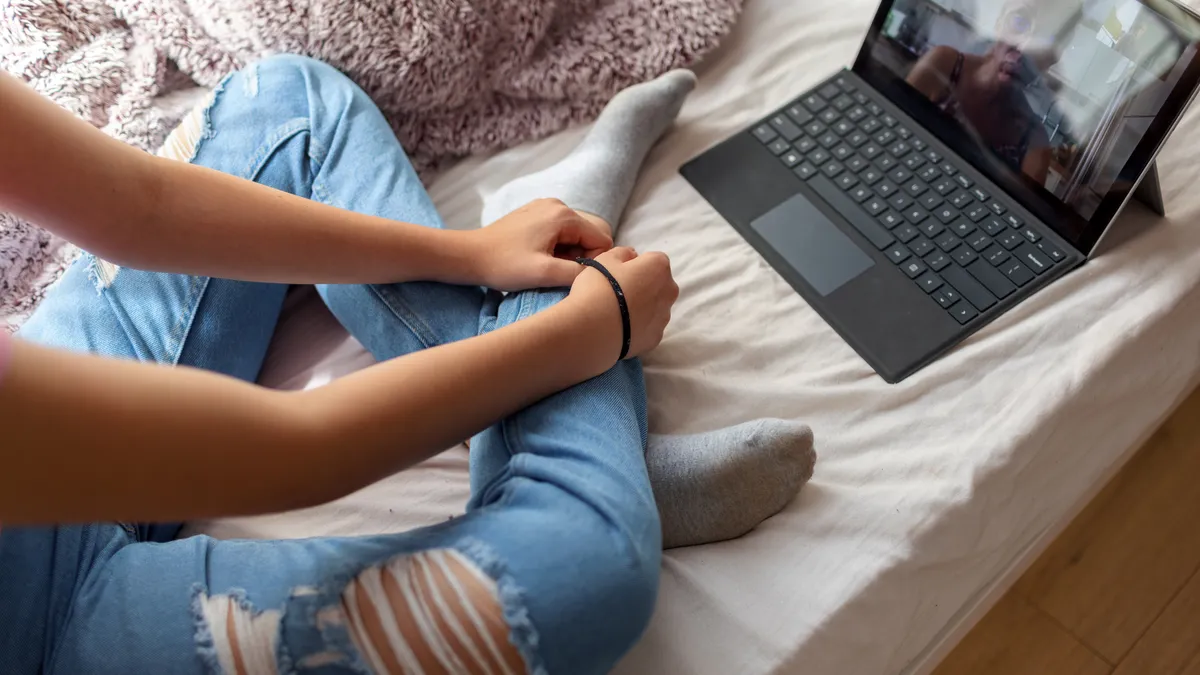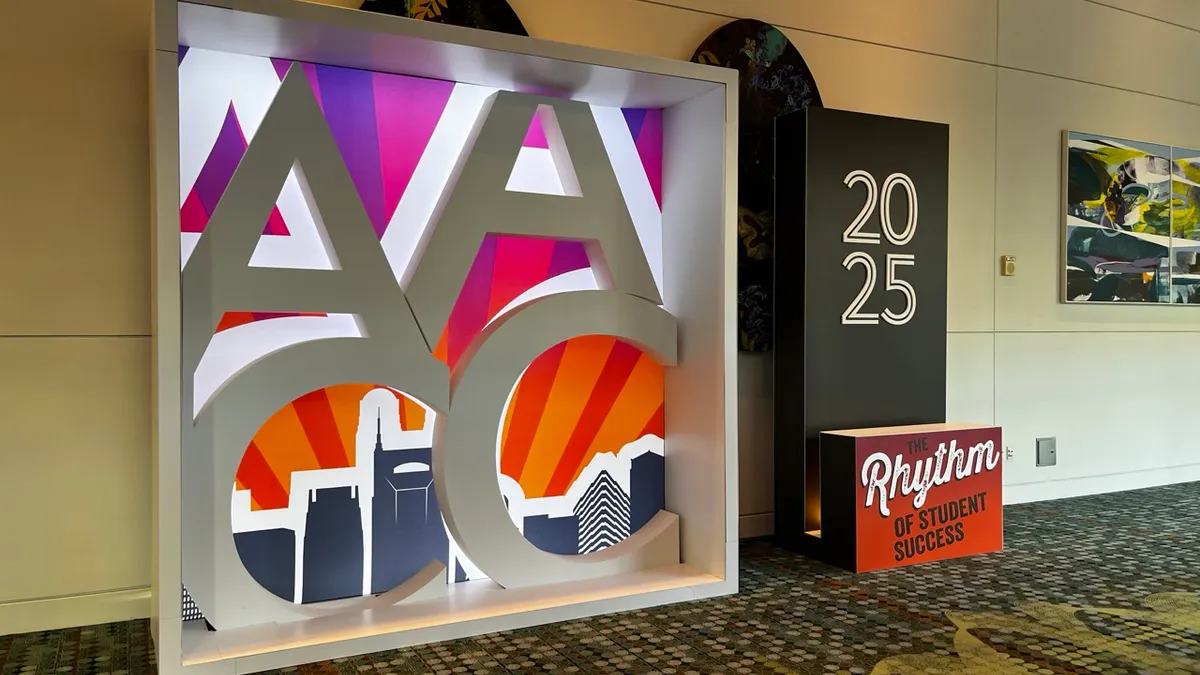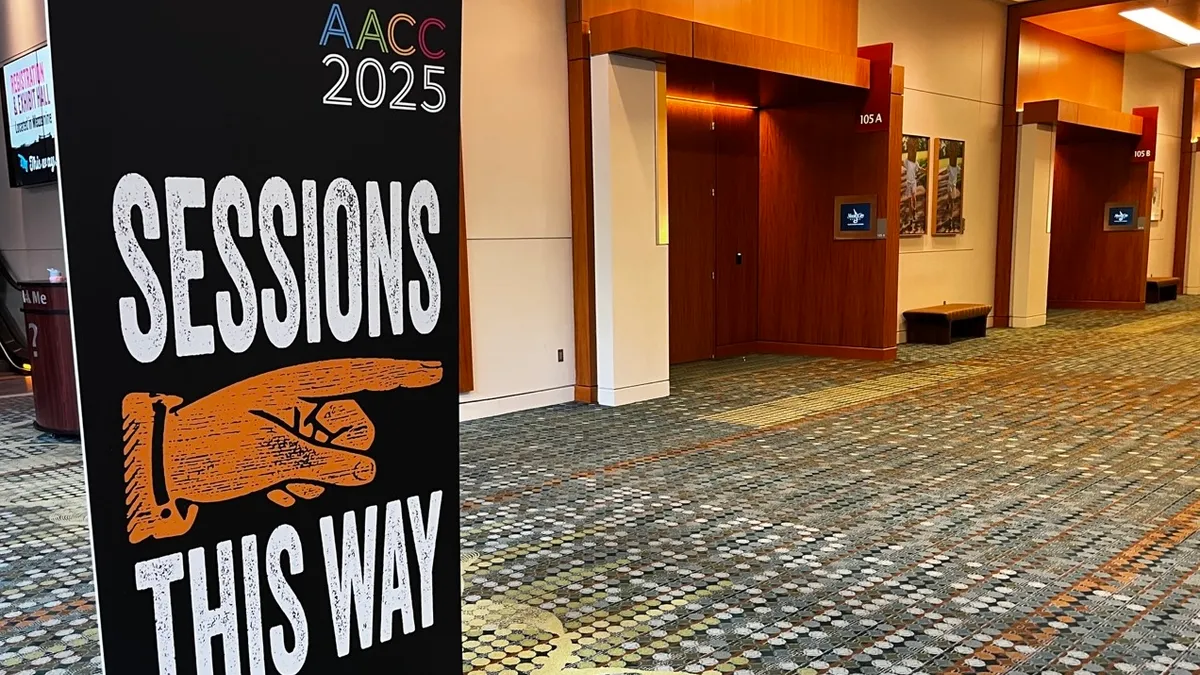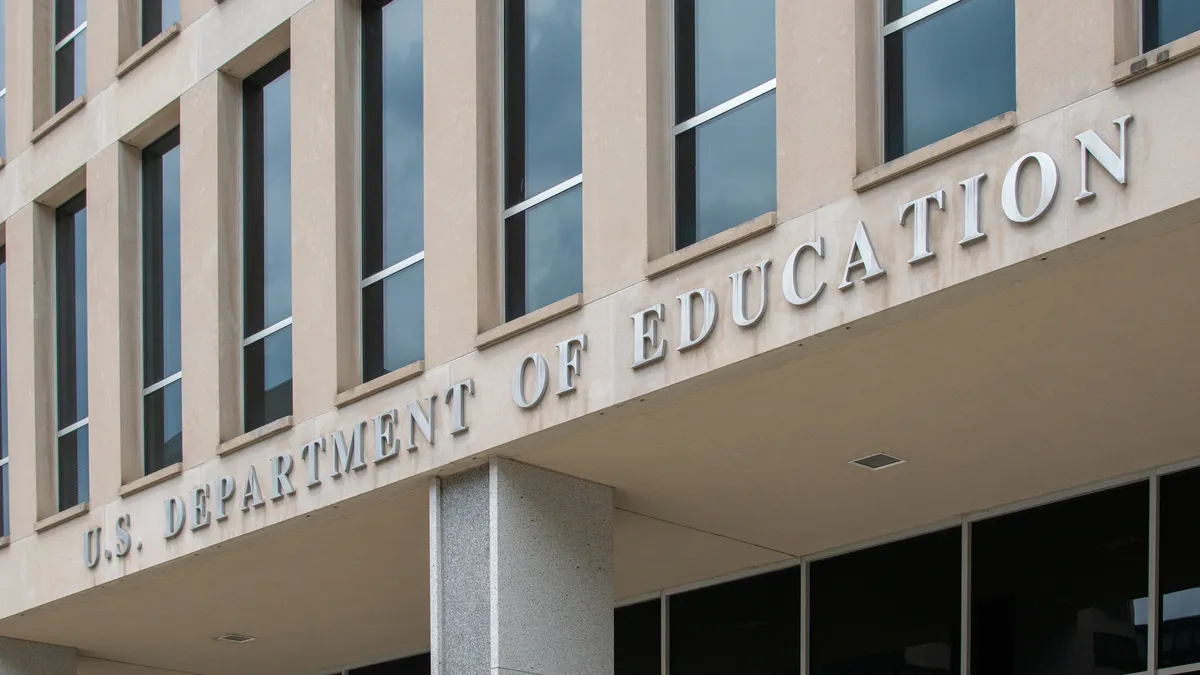The challenges students faced during the first years of the COVID-19 pandemic in their mental health, finances and academic performance have been well-documented. But what led some students to be able to cope with and grow from the experience rather than flounder?
New research on students who experienced the beginning of the pandemic — spring 2020 — as first-year college students suggests that the stories young people tell themselves and others about their experiences may be a part of that puzzle. Higher Ed Dive spoke with Jordan Booker, professor of psychology at the University of Missouri and lead author on the paper, to learn more.
This interview has been edited for clarity and length.
HIGHER ED DIVE: Could you tell us a little bit about your approach to this research and what you learned?
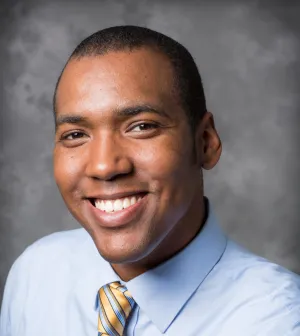
JORDAN BOOKER: We got together shortly after many U.S. universities started closing in response to COVID impacts in late spring 2020. We wanted to try to capture what students’ experiences were like, how they were organizing and sharing experiences of the impacts COVID in their lives.
We were interested in differences in how people shared and organized early stories about the pandemic might be informative for ongoing ways that they talked about well-being and adjustment in their college lives.
We were also interested in these broader, developmental questions of how people were coming to frame an identity, how they were coming to understand who they are and what their place in the world is.
We've been tracking these students as best as possible to look at how there might be some ongoing ties between early storytelling and ongoing outlook in areas of college adjustment, identity development and broader mental health concerns.
These were typically full-time students across four universities in different parts of the United States. We had colleagues at Emory University, the University of Missouri, the University of Kansas, and Western Washington University that we have been following for this project.
What can we take away from your research about students?
One of the big takeaways is that we do continue to see differences — person-to-person differences — in how people tend to go about organizing and making sense of their life stories.
In particular, there was one difference — these differences in how people recognize personal growth — that was tied to many of our outcomes of interest.
Some folks were doing a bit more, saying, "I would have never envisioned I could have made it through this kind of experience otherwise, but COVID has forced me to recognize that I have more strength that I gave myself credit for."
That focus on positive change in these early life stories about COVID was tied to better outlooks in the moment. Students were reporting less stress from COVID. They were reporting fewer concerns on mental health areas. They were reporting greater adjustment in multiple areas. They felt like their lives were more fulfilled, like they had better connections with others. These were students who tended to be making a bit more progress in some areas of identity development.
We also saw some of these connections extending out one year later, to spring of 2021.
There's sometimes a perception that when someone is going through something difficult, focusing on bright spots or silver linings can be a little insensitive. However, would you say that your research presented the idea that could be helpful for students?
Yes, with a caveat. If someone's in the middle of sharing about how they just got in a breakup, or they just struggled on a big chem exam, and someone turns around, "But now you know better, now you've learned from this, you're better off for it," that's probably not going to be the best thing for them.
Some of the most comparable work — on thinking of storytelling and thinking of the ways people can recover from particularly jarring experiences — has been done with events like major natural disasters and major events like 9/11. And you can find ways that with time from that event, and with constructive reasoning and processing like growth, people tend to look better, they tend to be functioning better, they tend to be moving forward better. But that role of time, I think, is really big.
Those kinds of natural disasters and major events like 9/11, they have a clear start and stop period, you can sort of recognize that chapter of your life has been an incredibly painful one, and then start making sense of it with enough distance afterwards.
COVID is harder.
It hasn't had a clear end, even to date. For some folks, it might be hard for them to fully get that distance from the impacts of COVID.
The students you studied are now seniors. But do you think that we will still be seeing some of these same effects on identity development in younger college students who went through COVID in high school?
We haven't looked at this specifically, but it's a really important question. This process of trying to figure out your place in the world, trying to work toward identity, starts earlier in those teen years. It's really relevant for late middle school, especially across high school. You could absolutely imagine some pretty notable disruptions or delays on some of the early steps of identity development for them as well.


